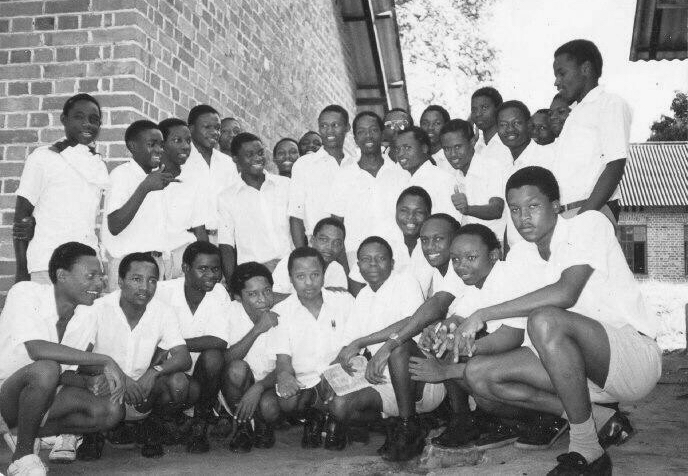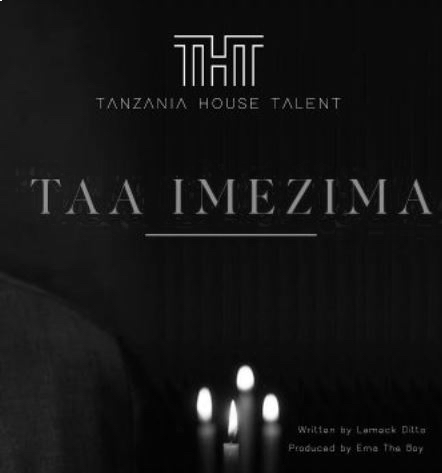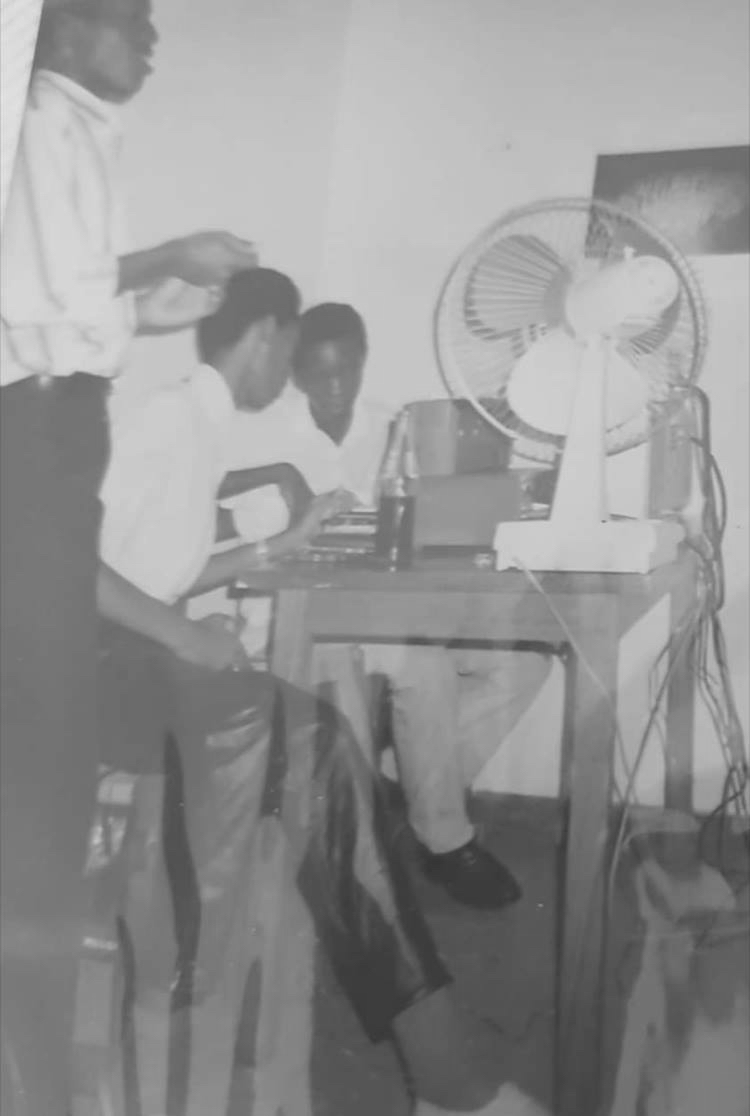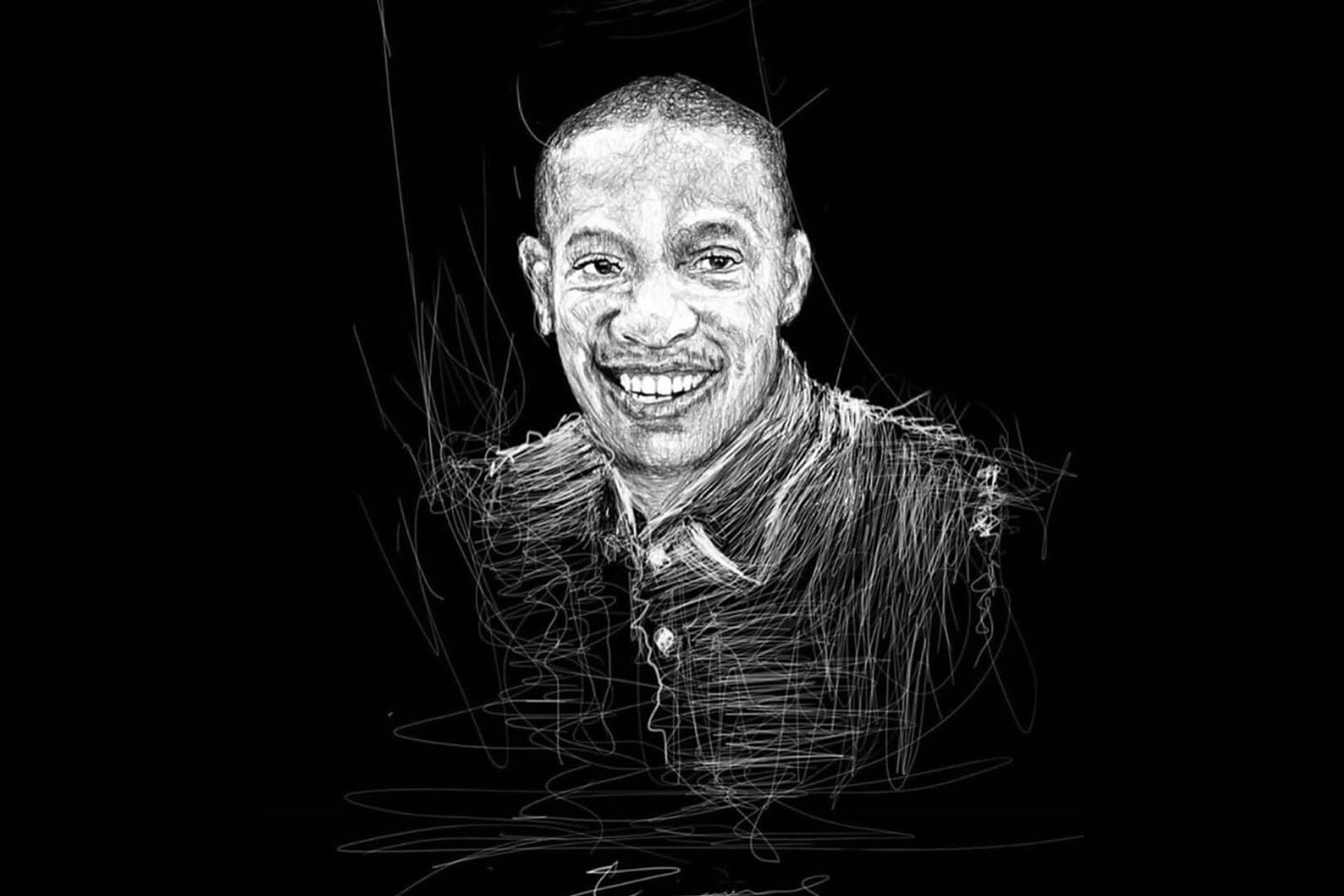Two years down the line, Tanzanians have marked the passing of edutainment and Bongo Flava legend, Rugemalira ‘Ruge’ Mutahaba, a proud Tanzanian son. He succumbed to death on Tuesday, 26 February 2019, while undergoing treatment in South Africa. I still reminisce that evening as Millard Ayo and Meena Ally of Clouds Media Group stopped the Amplifaya radio session for some seconds then announced the heartrending news. Meena busted into tears as Millard’s voice was dejectedly stuttering.
Ruge’s family was stunned. Filled with awe, they looked at the mass of mourners – friends, musicians, ministers, regional and district commissioners, members of parliament, and other local people – flocking to pay their last respect. Senior government officials and retired heads of state – the late John Pombe Magufuli and Jakaya Mrisho Kikwete – and other celebrities, using their social media accounts, expressed their heartfelt condolences. Over 100,000 people were estimated to have attended his funeral at Kizuri village in Bukoba, Kagera region.

He was born in Berkeley, California, in 1970 and received his primary and secondary school education in Tanzania. He attended Arusha and Mlimani schools at the primary level. Ruge later joined Forodhani Secondary School for Ordinary Level education (O-level) and high school in Pugu Secondary School for Advanced Level (A-Level) education. Ruge is an alumnus of San Jose State University in the US where he earned a bachelor’s degree in marketing and finance.
His professional life and that of Joseph “Jo” Kusaga are inextricably intertwined. They both shared the same mission, spirit, ambition, and urge for success. They met in the early 1990s. By that time, Ruge was pursuing university studies while Kusaga had already put a mark in the Tanzanian entertainment industry through Clouds Disco, which was transformed into the current Clouds Media. The night disco was an absolute banger, blending local and western music. It was a talk of the town, despite some hurdles, especially that of being unfairly regarded as uhuni (hooliganism).

Ruge entered into the game at its nascent stage, where artists performed original English rap versions with instrumentals being played by DJs in local discos and clubs in Dar es Salaam. At that time, society generally perceived Bongo Flava and Tanzania’s Hip-Hop as hooliganism and thuggish – “muziki wa kufokafoka”. Tanzanian youth, mainly secondary school students, who imitated the American Hip‐Hop style of clothing, gestures of greetings, and speaking, were considered to be smoking marijuana. Kwanza Unit members such as Imam Abbas, Y-Thang, Chief Rhymson, and KBC (KSingo) were among the early victims of that stereotype. They emulated flows and rap styles from the then American Hip-Hop crews such as Mobb Deep, Wu-Tang Clan, and Public Enemy.
It is imperative to appreciate legendary radio hosts Mike Mhagama, John Dilinga (DJ JD) and Sebastian Maganga. They pioneered and acted as a driving force for the game’s popularization. Radio stations, such as Radio One Stereo, Clouds FM, and Times FM, were the first to air and promote Bongo Flava music.
From whatever angle one looks at the Tanzanian entertainment industry, its evolution, business, unfolding entrepreneurial opportunities, and the standard it has set internationally, Ruge is one of the brains behind it. He transformed the industry from hooliganism to a noble and lucrative profession, earning commendation from people from virtually all walks of life and employing thousands of Tanzanian youths in a country where youth unemployment stands at 11.5 per cent. This piece is thus set to shed light on his contribution to the lucrative Tanzanian entertainment industry, particularly Bongo Flava, contributing about 0.3% of the Gross Domestic Product (GDP).

Traditionally, in politics, especially during the general election campaigns, Tanzanians were used to songs produced and sang by the late Captain John Komba from Tanzania One Theatre (TOT) and Khadija Kopa. TOT’s taarab music genre dominated. However, from the mid-2000 onwards, Bongo Flava artists, with Ruge as a mastermind, followed suit. For instance, in the 2005 general election campaign, the ruling Chama Cha Mapinduzi (CCM) presidential candidate, Kikwete was supported by artists such as Wanaume TMK, a group led by Juma Nature, through the “Ametukubali Tumemkubali Tour” (‘He has Accepted Us, We have Accepted Him Tour’). Bongo Flava artist MwanaFA – now a Member of Parliament (MP) since 2020 – had the song “Kijani na Njano” (‘Green and Yellow’), the colors of CCM. Vicky Kamata – who also later became an MP in 2015 – contributed a song highlighting CCM’s campaign slogan, “New Zeal, Vigor, and Pace.”
In 2010, the general election saw a proliferation of Bongo Flava artists dominating the campaign rallies from entertainment to campaign posters, stickers, and digital contents. Nowadays, politicians, from both the ruling party and opposition, use Bongo Flava artists in their campaign rallies to lobby and influence the mass to vote for them. In turn, artists are earning money through their music. This bedfellow-ship between artists and politicians, however, remains hotly debated.
The majority of Bongo Flava artists come from poverty-stricken backgrounds. Most of them are without even basic training in the performance of musical instruments, professional singing, dancing, musical composition, and the business of music at large. As a result, despite being talented with an urge to excel, many artists’ careers have been very short, tortuous, and financially ravenous, plunging some of them into substance abuse and depression.
In 2005/2006, Ruge used his financial resources to address this problem. He established the Tanzania House of Talent (THT), a non-profit, cultural, and educational organization for nurturing and grooming artists from scratch. The house offers various capacity building training classes such as short filmmaking, music production, hosting dance shows, entrepreneurship and life skills. THT has hitherto produced great artists such as Barnaba, Nandy, Mwasiti, Ruby, Lina, and Ditto. As part of Ruge’s legacy, THT is still continuing sustainably with its task of supporting music talents.

Ruge had an eagle’s eye on the complex web of roles and interactions missing within Tanzania’s media and entertainment industry. He believed that for Bongo Flava to prosper and keep up with the pace of the market, media and entertainment need a way to be coordinated, managed, and made to work coherently. Therefore, he nurtured artists and instantaneously mentored, inspired, promoted, and assisted Tanzanian presenters, distributors, marketers, and artist development managers to forge their desired futures by serving the mounting needs in the game.
For instance, Christine Mosha, alias Seven, former presenter of a breakfast show titled ‘Rise and Shine’ at Clouds FM and co-founder of Rockstar 4000 Entertainment, who recently secured a top job at Sony Music Africa, counts Ruge, her mentor. She stresses that Ruge gave her confidence, faith, and a chance to prosper. After his death, she posted on her Instagram account this tribute:
There are not enough words that properly sum up the everlasting impact you brought into my career and life and to our music industry. You choose to believe and invest in your people and country – giving confidence, faith and chances to many, who became what they were born to be and changed so many lives for the better. Rest in peace knowing we shall further carry your light and never forget or overlook the work you did and the path you created for us. Your inspiration and legacy remain intact, forever inspiring us and the future generations.
Music awards provide a plethora of opportunities to artists, such as a platform to showcase their talents, career guidance, and advice on music, monetary prizes, and nurturing and supporting upcoming artists. Unfortunately, for decades since independence in 1961, the Tanzanian entertainment industry had no notable music awards, which is an essential recipe for industry development and artists growth. To fill the puzzling vacuum, Ruge, together with Aggrey Marealle and James Dandu, alias Cool James/Mtoto wa Dandu, developed a proposal that established Tanzania Music Awards. This is a national music event that is held annually in Tanzania. In 2015, during an interview with MkasiTV hosted by Salama Jabir, Ruge disclosed:
Cool James came with the idea; however, we worked together to refine and develop a full proposal. It’s not public as we decided to remain behind the scenes.
All over the world, the growth in graduate jobs has not kept up with the increase in graduates. Hence, graduates accuse universities and governments of over-promising and under-delivering. Ruge had alternate thinking and approach towards these challenges. In his brain, contrary to countless university graduates, he didn’t see only degrees with high grades, but risk-takers with ambitions and ingenuity to turn threats into opportunities, ideas into business. Through the Fursainitiative and other academic forums, he talked to university students, boda-bodas (rickshaw drivers), entrepreneurs, and start-ups founders. He inspired and motivated them to convert their challenges into opportunities. In May 2018, Ruge shared the most powerful and life-changing speech to the University of Dodoma students under the auspices of Vijana Think Tank (VTT). He aptly warned them:
Stop looking for excuses and scapegoats. Let us talk about our problems internally and find the solutions internally. Everyone should be a social entrepreneur by solving our problems. Universities should teach pertinent skills-set such as complex problem-solving and critical thinking. Complaints will never solve our problems.
Ruge comes from a community in northwestern Tanzania, where education, principally higher learning, is generally highly valued. Virtually everyone dreams of a white-collar job, mainly professional, desk, managerial, or administrative work. Yet, retrospectively, convincing those around you, particularly the Haya community, of Bongo Flava music, commonly labelled thuggish, as a career path, was a daunting task. While delivering a touching eulogy on his departed friend, Kusaga stressed that:
Ruge had excellent pass marks, and he would have worked in the USA if he wished. However, after accomplishing his studies, I was so bashful that his parents and close allies will be dismissive of entertainment, particularly music as a career path. The Haya prefer professional careers and further learning aiming at Masters, PhD and Professorial levels. Surprisingly, he managed to convince them. Today, everyone knows the impact of Clouds radio on Bongo Flava music and community.
He indeed rejected traditional thinking and community professional imprints that elites, particularly university graduates like him, are destined to be in white-collar jobs. Instead, his mind was a mash-up of the professional values he was raised and taught and the ideals he encountered in the streets. As a result, the impact he has left, building the Tanzanian entertainment industry, creating and expanding youth employment opportunities, and nurturing talents to contributing to the national GDP (0.3%), is inconceivable.

Patriotism, local content, unity, and support within and amongst artists remained an integral agenda in his pursuits to develop and transform Bongo Flava. He lived and breathed this lifelong mission. On 14 November 2017, during an interview with Clouds 360 program, Ruge contended:
We can make it. Let’s support our artists and everyone in the game. Let’s add value and create a conducive business environment for our artists to prosper. Why do we wear Sean John T-shirts (USA) instead of Weusi clothing and other locally produced brands?
Ruge believed that mimicking American Hip-Hop tradition or Western music, no matter how fashionable, will never be a sustainable breakthrough for our artists and culture. He implored us to nurture a sense of brotherhood/sisterhood, collaboration, and support among all Tanzanian artists, whether in music, start-ups, prints, tailoring, painting or embroidery. In a few cases, his collaborative and supportive initiatives did not yield the intended brotherhood and sisterhood. Yet one can hardly fault him for attempting to build a strong support system for artists, broadly defined.
He further underscored the need for youth to be as innovative as possible, creating alternative apps to YouTube, Netflix, Facebook, Google, WhatsApp and other popular messaging apps to protect their local market and its opportunities. Ruge was highly patriotic in this sense. He insisted that:
China banned WhatsApp and supports WeChat to protect its local market and litany of other opportunities existing in their local market with a population of one billion-plus. Using external apps means benefiting the owners who are not Tanzanians. Therefore, as university students, you need to be innovative enough to create digital platforms to cater for various online transactions and demands, music inclusive, to benefit from our local market.
Thinking of Ruge now is a bittersweet nostalgia of satisfaction based on his accomplishment and daunting challenges looking at the unfinished business at hand. Tanzania’s entertainment industry, particularly Bongo Flava, is facing serious pirating. With digitalization and the internet, people are virtually downloading songs through file-sharing platforms for free, adversely affecting artists’ revenue generation. The sale of legal copies in the market is also adversely affected by widespread illegal copying made by stationery shops in rural and urban areas. Despite enacting the Copyright and Neighbouring Rights Act and creating the Copyright Society of Tanzania (COSOTA) in 1999 and 2001, respectively, intellectual property challenges and piracy persist.
Nowadays, artists earn money through brand images, social media networks, YouTube, bookings for performances at concerts and corporate functions, album sales, endorsements, and ring-back tunes. However, they hardly earn a coin through royalties and payments made when their songs are played on TV, radio or any medium using their songs commercially. The time is ripe for regulatory agencies, recording labels, artists, and respective ministries to devise a system that will benefit both artists and the government through royalties and taxes, respectively.
A quest for progress, in any profession, is a relay race filled with tumults. For the Tanzanian entertainment industry to realize the milestones it envisions, there is a need to unlock vital sources for its growth and fix the overriding traps along the way. To do so, the serious and forward-looking engagement of all actors, public and private, is paramount. That will be the biggest tribute to Ruge Mutahaba, humanity’s ideal example of service, an idol for many, and an embodiment of human decency and work ethics who was ready to listen and assist for the common – and greater – good.
In this regard, I am very pleased to hear there are ongoing efforts on the ground to honor his great work with the establishment of The Ruge Mutahaba Foundation.

As he once reiterated:
Shoot for the moon, even if you miss, you’ll land among the stars.

This is beautifully written.
Awesome
Umetisha sana kaka
Hongera umeandika vizuri,umeweza kuongelea hostoria ya muziki tangia ulipoanza mpaka ulipofikia kwa kufuata jitihada alizozifanya Ruge,hongera sana
Well written.
Thank you for this. May his Legacy live on.
Great catch. May his legacy live
Good written history!!
Keep it up bro
Waaaooo 😍
The history might have been known to some since they lived through it, but not how it is now written by your pen …the catch of the Author make the character legacy shine to ever single person reading this….This is beautiful
What a great piece of article.
Thanks for sharing.
Good read brother, thanks for sharing.
An interesting read and a befitting tribute to a true son of the soil!
Perfect, well written and insightful. Hongera sana